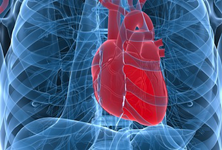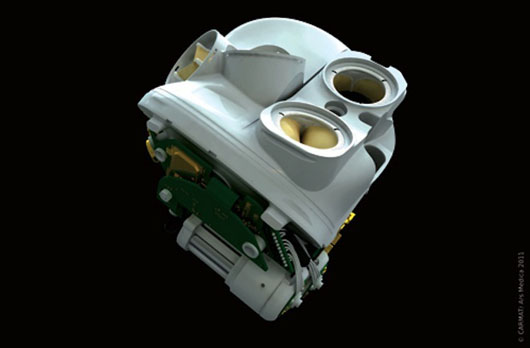On Trial: The First Bioprosthetic Heart

A French company has developed the first bioprosthetic heart by integrating biological and synthetic materials along with sensors and software that help in monitoring the levels of physical exertion in the patients and adjust the output accordingly. This implantable heart can be used in patients awaiting donor organs for transplant and those who are not eligible for transplant.
The number of patients in need of heart transplant is swelling each day, and the number of donor hearts available in a year is about 3500 only. These artificial hearts aren’t permanent fixtures but devices implanted into the patients until they get a donor heart. Currently, SynCardia Systems Inc. is the only provider of total artificial heart. Until now, there are more than a thousand patients who have undergone transplant with SynCardia’s artificial heart. SynCardia’s artificial heart is driven by air supplied by a 13.5 pound wearable driver that has to carried around be the patient. The presence of external components increases the chances of infection in patients with implants.
Carmat‘s bioprosthetic heart is the first completely implantable heart, without any external components. All the components are located inside the body cavity, thus reducing the risk of infections. Carmat’s artificial heart has two chambers, each divided by a membrane that holds hydraulic fluid on one side, while the other side faces the blood. A pump moves the hydraulic fluid in and out of the chambers. The fluid moves the membrane, which in turn pushes the blood in and out of the chamber. The blood facing side of the membrane is made of cow’s pericardial tissue, to make the device more biocompatible.
The use of animal tissue makes the patient less reliant on anti-coagulants, as they are less prone to blood clots that cause stroke and other problems. The valves in this artificial heart are again made of cow tissues and have sensors to detect changes in pressure within the system. The internal control system uses this information to regulate the flow rate in response to the body’s demand. This device was developed by Carmat in association with European Aerospace and Defense Systems and Alain Carpentier, a renowned cardiac surgeon pioneering in heart valve repair and co-founder of Carmat.
Carmat’s bioprosthetic heart is currently being implanted in patients on a trial basis at four world renowned cardiac surgery centers in Europe and Middle East. The participating institutions are St Pierre University Hospital (Brussels, Belgium), Silesian Center for Heart Disease (Zabrze, Poland), Prince Sultan Cardiac Center (Riyadh, Saudi Arabia) and the University Medical Center Ljubljana (Ljubljana, Slovenia).

